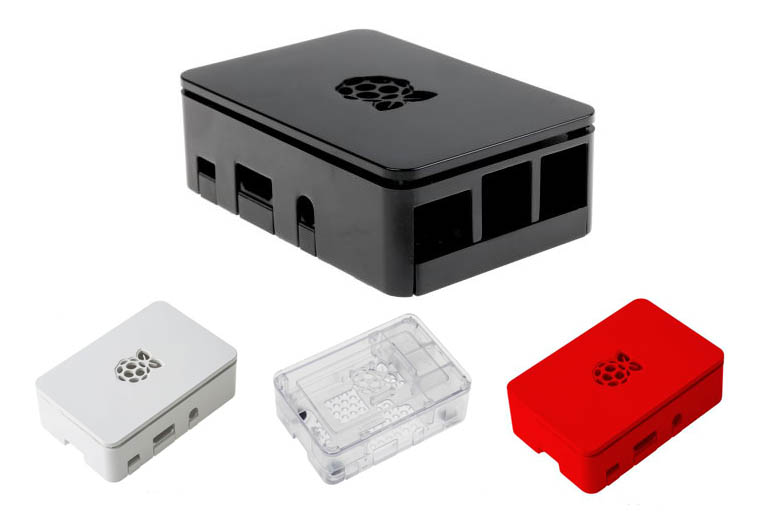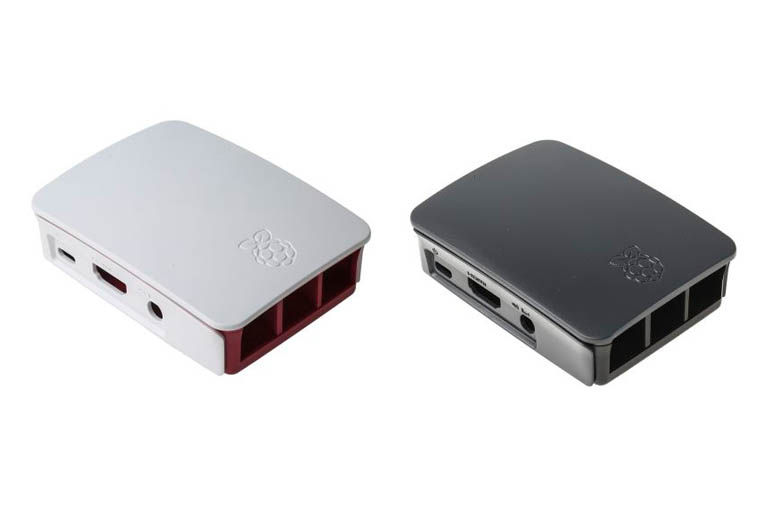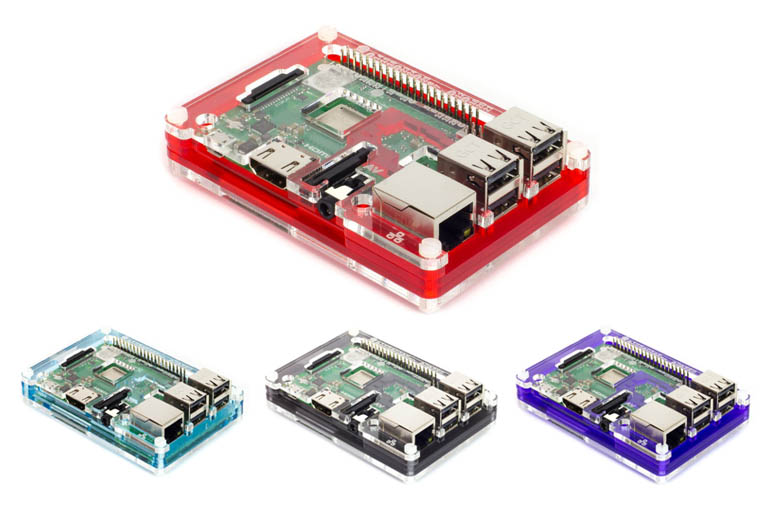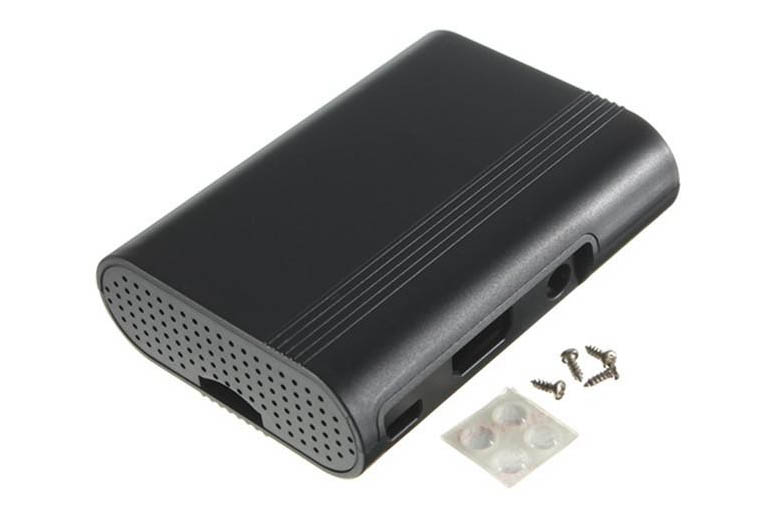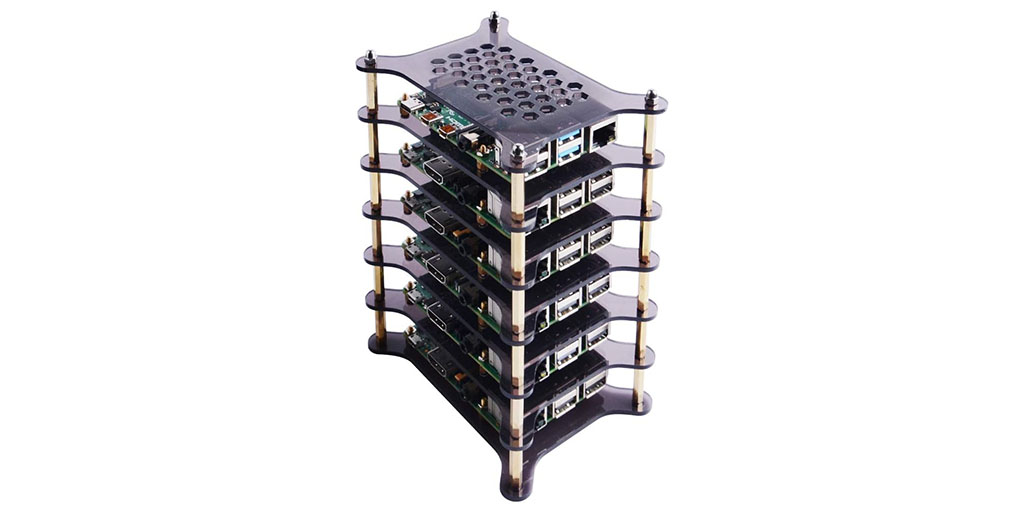Raspberry Pis are popularly used as a stand-alone devices, for they will need some form of protection. This post features 6 variations of Raspberry Pi cases.
Table of contents
Introduction to Raspberry Pi cases
Apart from pure protection, depending on its purpose, a good Raspberry Pi case is also aesthetically pleasing, has enough space to add additional components, and is small enough (or large enough) for its purpose.
Important factors to consider when obtaining a Raspberry Pi case are its look, size, durability, stackability, ability to add cooling, ventilation and access to onboard ports such as the GPIO pins and the camera port.
The Raspberry Pi A models and B models have different ports — so they will need different cases. The Raspberry Pi 4 is also different from the Raspberry Pi 3. The Raspberry Pi 2B and Raspberry Pi 3B/3B+ (second and third generations) can all use the same case while the Raspberry Pi 4B (fourth generation) has its own case layout.
In this post, Raspberry Pi cases are categorised into traditional cases, desktop cases, laser-cut cases and 3D-printed cases, cluster cases and Raspberry Pi cases made with LEGO bricks.
- Get the Raspberry Pi 4B 4GB Starter Kit from Amazon.com
- Get the Raspberry Pi 4B 8GB Starter Kit from Amazon.com
Traditional Raspberry Pi cases
Traditional Raspberry Pi cases take on the form factor of the Raspberry Pi board itself. They are usually square with similar dimensions. These cases are often used for their simplicity and small form factor. Traditional Raspberry Pi cases are also slightly limited with regard to adding additional components to the board.
Professional Raspberry Pi cases
Professional Raspberry Pi cases are traditional cases made from ABS. These cases were popularly manufactured and used with third-generation Raspberry Pis, but cases for the Raspberry Pi 4B are also available. Manufacturers of this case included DesignSpark — but generics are also available.
The original range included four polished colour options namely black, white, red and clear/transparent. They generally include rubber feet and due to their assembly, are non-stackable.
Being made from ABS and having a simple, sturdy build, Professional Raspberry Pi cases are generally strong and easy on the eye. The lid of the case is branded with the Raspberry Pi logo and the height of the case allows space for a small CPU fan to be installed.
The three pieces of the case snap together and do not need tools or screws. The design allows the top to be removed giving quick access to the camera port and GPIO connections, which can also be extended through the opening between the lid and the case using ribbon cables. The bottom of the case has screw holes which can be used to mount the case to a surface.
Official Raspberry Pi cases
Various suppliers also stock the official Raspberry Pi cases. They are available in white & red and black colours. These cases are available separately or as part of Raspberry Pi kits/bundles. Different official Raspberry Pi cases are available for the third and fourth-generation Raspberry Pis.
The official Raspberry Pi cases are stylish and lightweight and are made from high-quality moulded plastic. They are also branded with the Raspberry Pi logo on the top.
These cases consist of five pieces that easily snap together without the need for any tools or screws. The design allows the sides and top to be removed allowing quick access to internal GPIO connections. Official Raspberry Pi cases are not stackable.
The design of the Official Raspberry Pi case allows access to the GPIO pins through the side and the camera module port through the bottom of the case.
Multicomp Pi-BLOX cases
The Multicomp Pi-BLOX cases would have been perfect for those into LEGO bricks. These LEGO brick-compatible cases were made for third-generation Raspberry Pis and came in four colours (black, white, red, yellow, and blue). They could stack top and bottom with each other and with standard LEGO bricks.
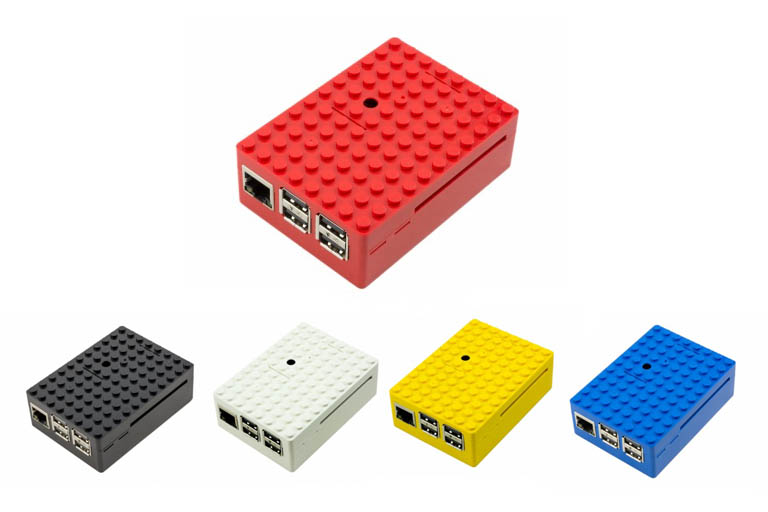
The Multicomp Pi-BLOX cases are LEGO brick compatible. They were available in red, black, white, yellow and blue.
The Multicomp Pi-BLOX cases also feature all the necessary openings for connectors and ports and include mounts for the Pi camera, which can be fitted inside of the case with holes in the lid for the camera lens and flash. The GPIO pins can be extended to the outside of the case using a ribbon cable.
Pimoroni Pibow Raspberry Pi cases
Pimoroni offers funky, colourful, “hackable” Raspberry Pi cases where the board is visible from the outside. The case is generally build-up with layers of acrylic which created a solid strong enclosure. The series includes Pibow, Pibow Coupé and Pibow Timber (for older Raspberry Pis).
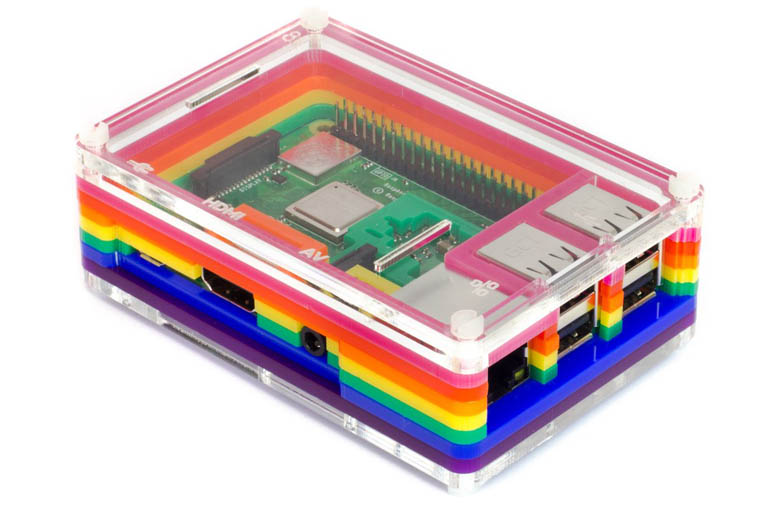
The Pibow Rainbow has build-up layers to the top and adds a top lid to the Raspberry Pi, while the other variants allow the top to be open.
Variations that are available include the Pibow Rainbow, the Pibow Coupé Red, Ninja, Flotilla, Royale and Tangerine.
As mentioned earlier, some assembly is required, but apart from a flat screwdriver, all the parts required, including silicone screws are supplied. Pimoroni Pibow cases are sold from their official website and are available for third and fourth-generation Raspberry Pis.
Generic ABS cases
ABS cases for the Raspberry Pi Model Bs are very basic and budget, but quite sleek-looking with rounded edges. Mostly seen in black with very little texture, they are made in many variations by many manufacturers, making them a bit of a generic case.
These cases have no openings for the Raspberry Pi camera module or GPIO pins. They are also non-stackable and offer little ventilation. Small heatsinks can be installed, though. So far I only came across generic ABS cases for third-generation Raspberry Pis.
Generic ABS cases consist of four pieces and assembling using the screws supplied will be required (screwdriver not included).
Desktop cases
Various desktop-looking cases are also seeing the light. They are a little bulkier than most of the other Raspberry Pi cases and offer extensions and expansions such as heat sinks, power buttons, fans, and displaced ports. Desktop cases are generally non-stackable but offer a lot of ventilation.
GeeekPi DeskPi Lite
The GeeekPi DeskPi Lite is a sleek desktop-looking case for the Raspberry Pi 4. This case utilises an add-on heatsink and extension board which allows the case to have two USB ports on the front and two USB ports on the back of the case together with the power input, two regular HDMI ports and the Ethernet port.
The front of the case also has an LED and power switch for the Raspberry Pi. The GPIO of the Raspberry Pi is extended to the side of the case and covered by a removable rubber sleeve.
The body of the case is lightweight and made from black plastic. The GeeekPi DeskPi Lite requires assembling parts.
Pironman Raspberry Pi 4 case
The Pironman Raspberry Pi 4 is a mini-PC case for the Raspberry Pi 4. With added heatsinks and fans, funky LEDs, CPU/RAM/ROM display, and port displacements, this relatively bulky Raspberry Pi case is a must for those who want to show off their Raspberry Pi 4.
The expansion board adds functionality for an M.2 SATA SSD and extends the GPIO pins to the side. A power button is also added to the front of the case. After assembly, the case dimensions are 138 x 88 x 157 mm / 5.51 x 3.54 x 6.3 inches (L x W x H). The main frame of the case is aluminium-based while the side panels are made from clear transparent acrylic.
The Pironman Raspberry Pi 4 case is delivered as a kit, so assembly is required. Assembling tools are supplied. Some features also have to be installed using terminal commands.
Pizen Aluminium Raspberry Pi 4 case
The Pizen Aluminium Raspberry Pi case is a budget desktop case that turns the Raspberry Pi 4 into a mini-PC. The final setup includes a heatsink, fans and LEDS. Manufactured by ElectroCookie (amongst others), the Pizen Aluminium Raspberry Pi 4 case adds an extension board that displaces GPIO pins to the side of the case.
The base of the case is made from black aluminium. Side panels, made from acrylic, are available in transparent neon, transparent black and transparent clear. The Pizen Aluminium Raspberry Pi 4 case needs assembling, but tools and screws are included. When fully assembled, the case measures 96 x 60 x 96 mm / 3.85 x 2.40 x 3.85 inches (L x W x H).
Lazer-cut Raspberry Pi cases
Raspberry Pi cases can also be laser-cut. This involves cutting sheets of wood or acrylic into shapes in order to be assembled. Various CAD files are available to cut your own Raspberry Pi cases, but pre-cut cases are available to order.

Laser-cut Raspberry Pi case made from wood. Image from GrabCAD.
Lazer-cut Raspberry Pi cases allow for customisation in the form of openings, look, colour and material. For those already owning a laser cutter, this option might be cheaper, especially when sourcing cases for multiple Raspberry Pis. Wood and acrylic are popularly used as materials for laser-cut Raspberry Pi cases.
3D-printed Raspberry Pi cases
Raspberry Pi cases can also be 3D-printed using ABS or PLA. As with laser-cut Raspberry Pi cases, 3D-printed cases allow for the ultimate customisation in the form of size, look and colour.
Stackable Raspberry Pi cases
As the name implies, stackable Raspberry Pi cases allow stacking on top of each other. These cases are popularly used for Raspberry Pi cluster projects. There are many variations of stackable Raspberry Pi cases available, ranging from acrylic plates stacked on top of each other to actual cases (which offers more protection, but comes at a higher cost.
When it comes to choosing stackable raspberry pi cases, the number of units that can be stacked on top of each other and the amount of ventilation is often important.
Using standoff spacers
Raspberry Pi boards can also be stacked using hexagonal standoff spacers.
The PCB mounting holes of the Raspberry Pi is 2.5mm in diameter, so the thickness of the screw of the standoff spacer needs to be M2.5. The height required to clear each Raspberry Pi is just about 15mm / 0.6 inches, so the height of the standoff spacers needs to be taller than that.
Raspberry Pi cases made with LEGO bricks
Brick builders have also created various cases for the Raspberry Pi using LEGO bricks. Raspberry Pi cases made with LEGO bricks can be made to one’s heart’s content. LEGO bricks are made from ABS plastic, so the right design will offer strength (as long as you don’t step on it) and cases can be made to stack or to be hidden away within larger brick models.
LEGO parts can be bought individually from places like BrickLink. See our Blockstad BrickLink store (South Africa) to start building.
Where to obtain Raspberry Pi cases
Although some of these Raspberry Pi cases are already discontinued, some might still be available from online shops like Amazon, BangGood, and eBay. The original manufacturer might also offer online shopping from their official website. 3D-print and laser-cut template files are available from websites such as GrabCAD, Thingiverse and TinkerCAD. LEGO bricks can be obtained individually from places like BrickLink.
For South Africans, Raspberry Pi cases are available from RS Online, PiShop and Takealot.
Conclusion
A case is a good thing when it comes to protecting stand-alone Raspberry Pis. Raspberry Pi cases are dependent on the generation of the Raspberry Pi and are available in many variations.
Here we categorised Raspberry Pi cases into traditional cases, desktop cases, laser-cut cases, 3D-printed cases, stackable cases and Raspberry Pi cases made from LEGO bricks.


